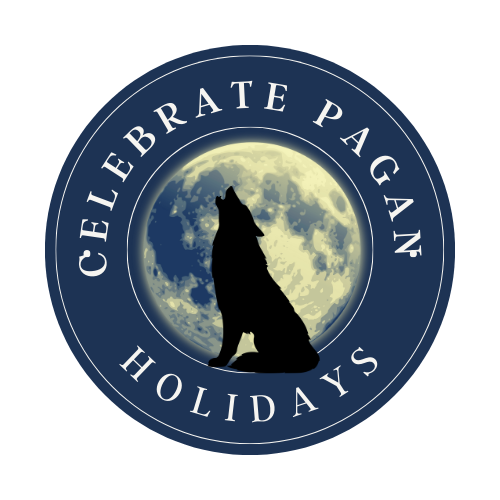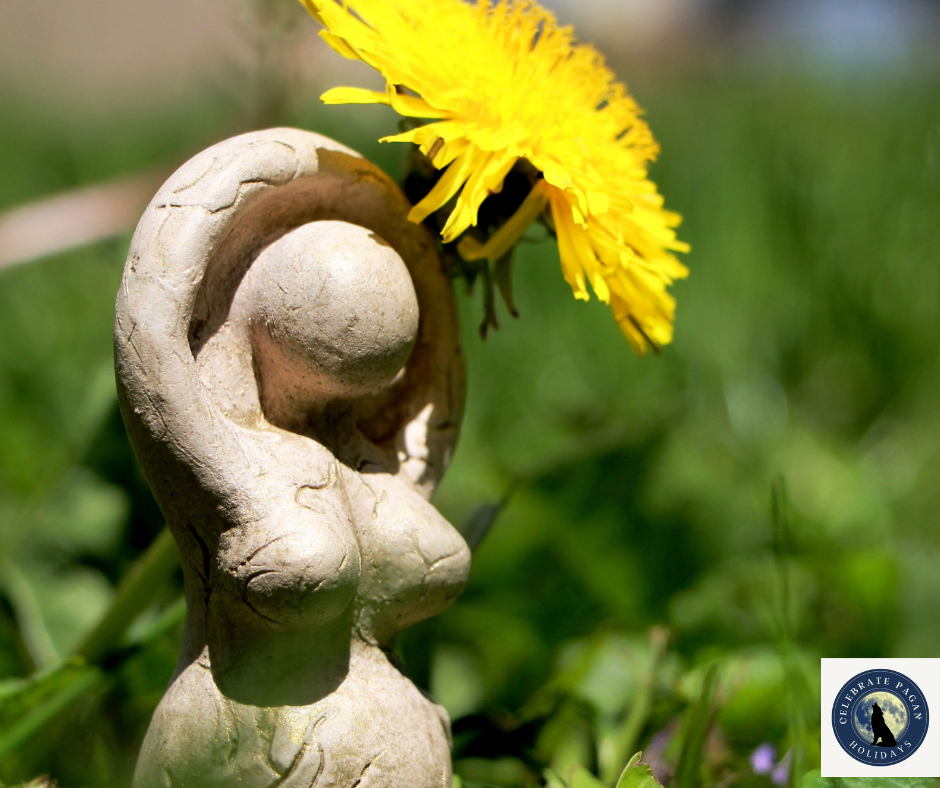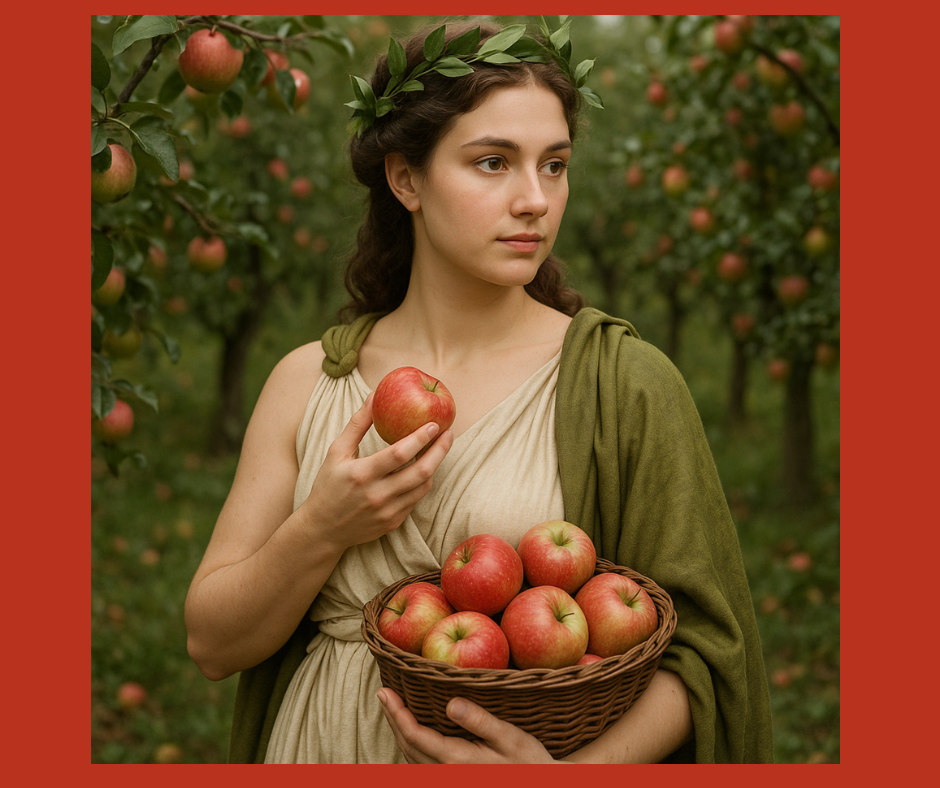In a world filled with rigid religious structures and prescribed ways of worship, many people are discovering the liberating and enriching path of Paganism. Far from being a modern fad, Paganism represents some of humanity's oldest spiritual traditions, offering a refreshing alternative to conventional religious practices.
Paganism is a dynamic growing religion but what are the benefits? In this article, we will examine seven benefits that pagans have when compared to other religions.
Keep in mind that pagan practices are very diverse and these are general things pagans have in common.
Benefits of Being a Pagan
No dogma or authority figure
Individual responsibility vs, sin and shame
Connect with nature and the environment
God AND Goddess - the female deity
Power of magic and divination
Religious Freedom
Inclusive - paganism is open to all races, genders, and sexual orientations
No Dogma or Authority Figure
Pagan religions don’t have a dogma. Dogma is a set of beliefs taught by religion. Many churches feel these rules are set down by their God. Think of the Ten Commandments.
One of the most liberating aspects of Paganism is its absence of rigid dogma. Paganism encourages personal exploration and individual spiritual development. There's no single "right way" to be Pagan, no central authority dictating how you should worship, and no standardized set of beliefs that everyone must follow.
This freedom allows practitioners to develop their own relationship with the divine based on personal experience rather than prescribed doctrine. You might find yourself drawn to Celtic traditions one month and Egyptian mythology the next, or you might create your own unique blend of practices that speaks to your soul.
This flexibility means your spiritual practice can evolve as you grow and change throughout your life. I personally find this very freeing and have gained a lot of knowledge because I feel motivated to work with a variety of deities.
When you're not bound by unchanging rules, you're free to question, explore, and deepen your understanding continuously. This keeps your spiritual practice fresh, relevant, and personally meaningful.
Pagans don’t have an authority figure such as Jesus or Muhammed. In fact, seeking that absolute truth in authority is very “anti-pagan”. We tend to be more seekers and doers.
This doesn’t make us immoral, it means we are personally responsible for our behavior. Our faith is not based on a list of memorized rules. It comes more from within and the desire to be a good human.
““The world is holy. Nature is holy. The body is holy. Sexuality is holy. The imagination is holy.
Divinity is immanent in nature; it is within you as well as without.””
Individual Responsibility Versus Sin and Shame
Perhaps one of the most psychologically beneficial aspects of Paganism is its general absence of concepts like original sin, eternal damnation, and shame-based morality. Sin is defined as an immoral act considered to be a transgression of divine law. Most Pagan traditions don't teach that natural desires and impulses are sinful.
Pagan gods have not set divine laws that must be followed. For those that follow a certain pantheon, our obligation as mortals is to honor and respect the gods. However, we do this while accepting personable responsibility for our actions.
Some pantheons like the Norse shows the gods in a very human light. Gods such as Thor frequently make mistakes. They are not portrayed as all-powerful or perfectly wise beings, and their actions often lead to unintended consequences, even for themselves. Their flaws make them relatable.
Read more in my article Thor: God of The Common People
Pagan gods and goddesses are not perfect. They make mistakes and they do things that make others angry. In this way, they are examples to us and teach us lessons.
This does not mean we believe in a free for all society. As modern Pagans, we believe that people should be treated in a just and fair manner. Mutual respect and kindness are ways we show responsibility for our actions. This creates a more mature and thoughtful approach to morality that comes from within rather than being imposed from outside.
Paganism typically embraces a more holistic view of human nature. While it doesn't promote harmful behavior, it doesn't demonize natural human experiences like sexuality, pleasure, or even anger when appropriately expressed. This approach can be incredibly healing for people who have experienced religious trauma or who struggle with shame around their natural selves.
Many people find that releasing shame-based thinking allows them to develop a healthier relationship with themselves and others. When you're not constantly worried about being judged as sinful or unworthy, you can focus more energy on personal growth and positive contribution to the world.
The pagan community is more open to LGBTQ and their families then many other religions. This video talks about deities which are gender fluid or trans.
Connect with Nature and the Environment
Most Pagan traditions view the natural world as sacred, seeing divinity in forests, rivers, mountains, and living creatures. This perspective encourages practitioners to spend time outdoors and develop a deeper appreciation for the environment.
Nature is about unity and connections. Spiritually pagans have a deep reverence for the earth and see themselves as part of nature. Many pagans, like myself, are environmental activists and work towards protecting the planet and wildlife.
This environmental activism may be used in our spiritual path. For example, I seek to purchase crystals that have been mined or produced in a sustainable manner.
This connection with nature has been shown to have significant mental health benefits, including reduced stress, improved mood, and increased feelings of peace and well-being. When you regularly engage with natural cycles and seasonal changes, you develop a rhythm that feels more in tune with your body and the world around you.
Many Pagans celebrate seasonal festivals throughout the year, marking important transitions like solstices and equinoxes. These celebrations help practitioners stay connected to natural rhythms and find meaning in the constant cycle of growth, harvest, death, and rebirth that characterizes life on Earth. Check out the Celebration Calendar Page
A brief look at the 7 benefits of paganism.
Check out our Store/Resources page for PDF books, Coloring Books and Free Downloads!
God AND Goddess
Many religions are male-dominated or male-led such as in the Abrahamic religions. Paganism offers something that many traditional religions lack: a strong emphasis on feminine divinity. While mainstream religions often present primarily masculine images of the divine, Pagan traditions celebrate goddesses alongside gods, recognizing the sacred feminine as equally powerful and important.
This inclusion of female deities provides powerful role models for women and helps address the spiritual imbalance that many people feel in patriarchal religious systems. Whether you connect with Brigid's creativity, Artemis's independence, or Quan Yin's compassion, having divine feminine figures to relate to can be profoundly healing and empowering.
Pagans are much more in line with the masculine and feminine balance. Many ancient pagan pantheons had a God and Goddess that were seen as supreme deities and parents to the other deities.
For many practitioners, this balance between masculine and feminine divine energy creates a more complete and satisfying spiritual experience. It reflects the natural world more accurately, where both masculine and feminine principles work together to create life and maintain balance.
Pomona, Roman goddess of orchards
Power of Magic And Divination
This is probably the most intriguing and popular aspect of paganism. Many come to paganism because they want to be witches. Not all pagans are witches. However, most pagan cultures have a magical practices such as divination.
Divination means to prophesy’ or predict. It was widely practiced by our pagan ancestors and these traditions were passed down. Dowsing, numerology, rune casting, scrying, and tarot are just a few.
Rituals and spells are two ways we express our religion. The words are often interchanged however they are two different ways we experience paganism. Broadly, rituals are based on traditions and spells have a specific outcome.
Paganism strongly emphasizes personal empowerment and individual agency. Rather than encouraging dependence on external authorities or saviors, most Pagan traditions teach that individuals have the power to create positive change in their own lives and the world around them.
This empowerment often manifests through practices like magic, meditation, and ritual work. Whether you believe in magic literally or see it as a form of focused intention and psychological work, these practices can help you feel more in control of your circumstances and more capable of manifesting your goals.
Religious Freedom
Pagans have the same religious freedoms guaranteed under the Constitution as other religions in the United States. (I can’t speak to other countries)
It's against the law for anyone to discriminate against you because you are a pagan. As we know discrimination does happen in the workplace and there are several cases in the court system right now that involve pagans.
Pagan children in the public school system have the same rights as other students to learn in a non-judgmental environment.
On the same note, members of US military services have the right to practice their religion. See our article on Religious Beards in the Workplace.
On a related note, there are some local municipalities that have laws against fortune-telling. These laws are not necessarily anti-divination or anti-pagan. They were set up to protect people from being swindled by people who pretend to be knowledgeable in the art of divination.
Inclusive
The Pagan community is remarkably diverse and generally welcoming to people of all backgrounds, orientations, and life circumstances. Unlike some religious communities that may exclude or marginalize certain groups, Paganism tends to celebrate diversity and individuality.
This inclusiveness extends to LGBTQ+ individuals, people with disabilities, those from different cultural backgrounds, and anyone who might feel out of place in more traditional religious settings. Many Pagan communities actively work to create safe, welcoming spaces where everyone can explore their spirituality without judgment.
The diversity within Paganism also means there's likely a tradition or approach that resonates with almost anyone. Whether you're drawn to ceremonial magic, herbalism, Norse traditions, or eclectic Wiccan practice, you can find like-minded practitioners and supportive communities.
Read my blog Introduction to Paganism to learn about different pagan traditions
This sense of belonging and acceptance can be particularly valuable for people who have felt excluded from other religious communities or who are still exploring their spiritual identity. The Pagan community's emphasis on personal experience over conformity creates space for authentic self-expression and spiritual growth.
Paganism is open to all races, genders, disabilities, and sexual orientations. And yes, we do acknowledge that there are challenges and ways we can be more open minded.
Inclusiveness gets back to the idea of sin and personal responsibility. For example, the Abrahamic religions have rules and opinions about homosexuality which they condemn as being a sin.
Pagans are much more open-minded about sexuality in general. They view sexuality as a personal choice and would be personally responsible for choices such as practicing safe sex, using birth control, and adult consent.
Not True Pagans
While modern paganism generally strives for inclusivity, there are specific groups within paganism that are associated with white supremacist and racially exclusionary ideologies. They represent a small and extreme fringe within the broader pagan community.
Sadly, these few small minority groups are not inclusive and quite narrow-minded- but I would not call them pagans. Rather they appropriate a part of a religious tradition for their narrow viewpoint.
For the flip side of this article Check out my article: Challenges of Being a Pagan
Author, Ame Vanorio, is a lifelong pagan, an environmental educator, and a licensed wildlife rehabilitator. Ame writes about honoring nature, animal spirit guides, crystals, and holidays.








The ancient Celtic calendar is based on a lunar schedule and contains thirteen months in the year. In modern paganism, we united the lunar phases with the Gregorian calendar to give us a definitive time period.
The Celtic Tree Months are based on the Ogham alphabet and each month corresponds to a sacred tree. The trees are associated with deities, elements, healing, and certain areas of magic.